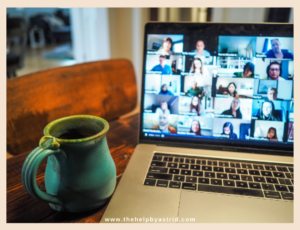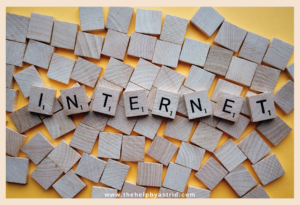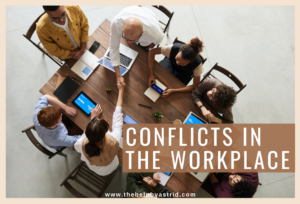
There are still a majority of people working from home. That means a lot of our work meetings, one-on-one coaching, and work catch-ups are done through video conferencing. Some of us may have challenges with maintaining professionalism since not everyone has the benefit of having dedicated work from home workspaces. Inevitable background noises, kids and pets on camera, and messy backdrops are par for the course during video conferences. Everyone understands the struggle and is more forgiving, under the circumstances. However, we must all strive to maintain virtual meeting etiquette in order to make video meetings a fruitful experience for everyone involved. Here are a few tips to ensure that your video calls will go smoothly:
1. Have an agenda
This benefits all participants as:
- They can prepare for the meeting beforehand
- They can set expectations of what will be discussed and for how long the meeting will last
- They can set action items for points related to them on the agenda
2. Find a quiet place
First, let everyone in the household know that you will be on a video call. Let them know that you need this time to be free of noise and distractions. Then, find a quiet place to set up your gear. A private room with a door is best, but if not, a part of the house that is relatively quiet will do.
3. Eliminate distractions
Turn off anything that can make a background noise; fans, phones, a radio, the tv. Shut down the windows to eliminate outside noise. Make sure nobody can walk by and be seen on camera while you are taking a call.
4. Wear a headphone with a mic
Your laptop mic picks up all background noise and may not have the best audio quality. Buy a dedicated headphone with a mic. This will greatly improve your audio.
5. Test your equipment
Test your equipment BEFORE the video call. It would be a shame to not be able to attend just because of technical difficulties, so make sure to check your gear beforehand.
6. Turn off notifications
You won’t be able to concentrate on the meeting if someone keeps pinging your phone or if you are constantly getting alerts from social media. Turning off notifications is an easy way to eliminate one possible distraction.
7. Introduce yourself
It is good manners to let people know that you have joined the call. A simple “Hi everybody, it’s (name) here. Good to see you all!” will do.
8. Use the mute button
When it is not your turn to speak, put yourself on mute. This should be the norm for video calls with more than 3 people. Imagine hearing 10 sources of audio. Wouldn’t that be distracting? Make it easy for others to hear the speaker by putting yourself on mute when you’re not speaking.
9. Address participants by name
To avoid confusion about whom you’re talking to, address the person by name. But don’t talk over someone who is speaking. You can use the raise hand feature in some apps like Zoom.
10. Stick to the schedule
Don’t go over the schedule, follow the agenda and wrap up on time.
What are your video call etiquette tips? Share them with us in the comments. Remember to work smart and be a blessing to someone today. Stay safe and healthy!
Written by Jaie O. TheHelp



